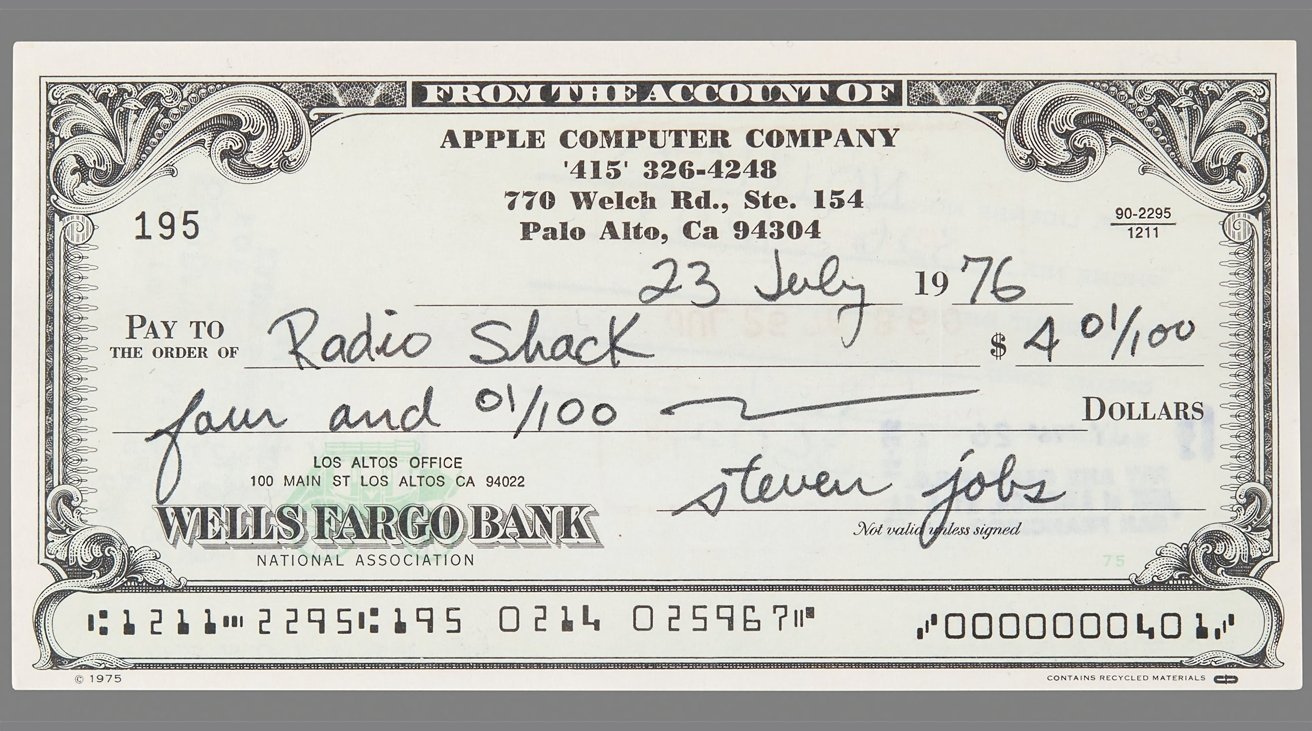Steve Jobs went shopping at RadioShack in 1976, spending a whopping $4.01 via a signed check — and that check has blown away expectations, hitting $46,063 at auction.
RR Auction held its Fine Autograph and Artifacts auction from November 17 to December 6. It featured a Science and Technology sale with a signed check from Steve Jobs.
The check was expected to fetch around $25,000, but ended up closing at $46,063. The check was written for $4.01 for a purchase at RadioShack on July 23, 1976.
RadioShack played an important part in the pre-Apple days, as co-founder Steve Wozniak bought the TRS-80 Micro Computer System at the retailer, which he then used to build his "blue box" to make long-distance calls for free. In the early days of the partnership between Wozniak and Jobs, the pair made and sold around 200 of the boxes for about $150 apiece.
The check was written just four months after Apple was founded, showing how RadioShack remained an important resource even as Apple began.
In May, another auction for an Apple check signed by Jobs from July 1976 also went up for auction. However, that check to pay Crampton, Remke, and Miller, Inc $175 eventually sold for $106,985.
Apple memorabilia constantly shows up for auction and fetches lavishly high prices. A sealed first-generation iPhone fetched $10,456 at the same auction.
 Wesley Hilliard
Wesley Hilliard








 Christine McKee
Christine McKee
 Marko Zivkovic
Marko Zivkovic
 Mike Wuerthele
Mike Wuerthele

 Amber Neely
Amber Neely
 Sponsored Content
Sponsored Content











8 Comments
That's some inflation
Unfortunately most
The art auction world is way, Way, WAY worse, those guys frequently put obvious fakes up for sale.
For that matter, for all we know this check could be a fake. After all, faking a Seventies-era check is undoubtedly easier than faking a Federal Reserve Note just due to the fact that very few remember what the original check looked like. And the paper stock for checks wasn't as tightly controlled as the paper stock for currency. Probably easier to find some reams of old check paper.
Anyhow, I hope the winning bidder enjoys it.
That was a cool WF check style. Today's offerings are bleak by comparison. I don't use checks much anymore so it's not an issue.
Without seeing the back I assume it's a cancelled check returned to Apple Computer Company and somebody thought to save it. Maybe it was discovered or it was dug up out of old company records. There may be more out there. Maybe we'll see another in a year or two.
Too bad there's not more info on who sold the check. Who had permission to have the check and sell it.